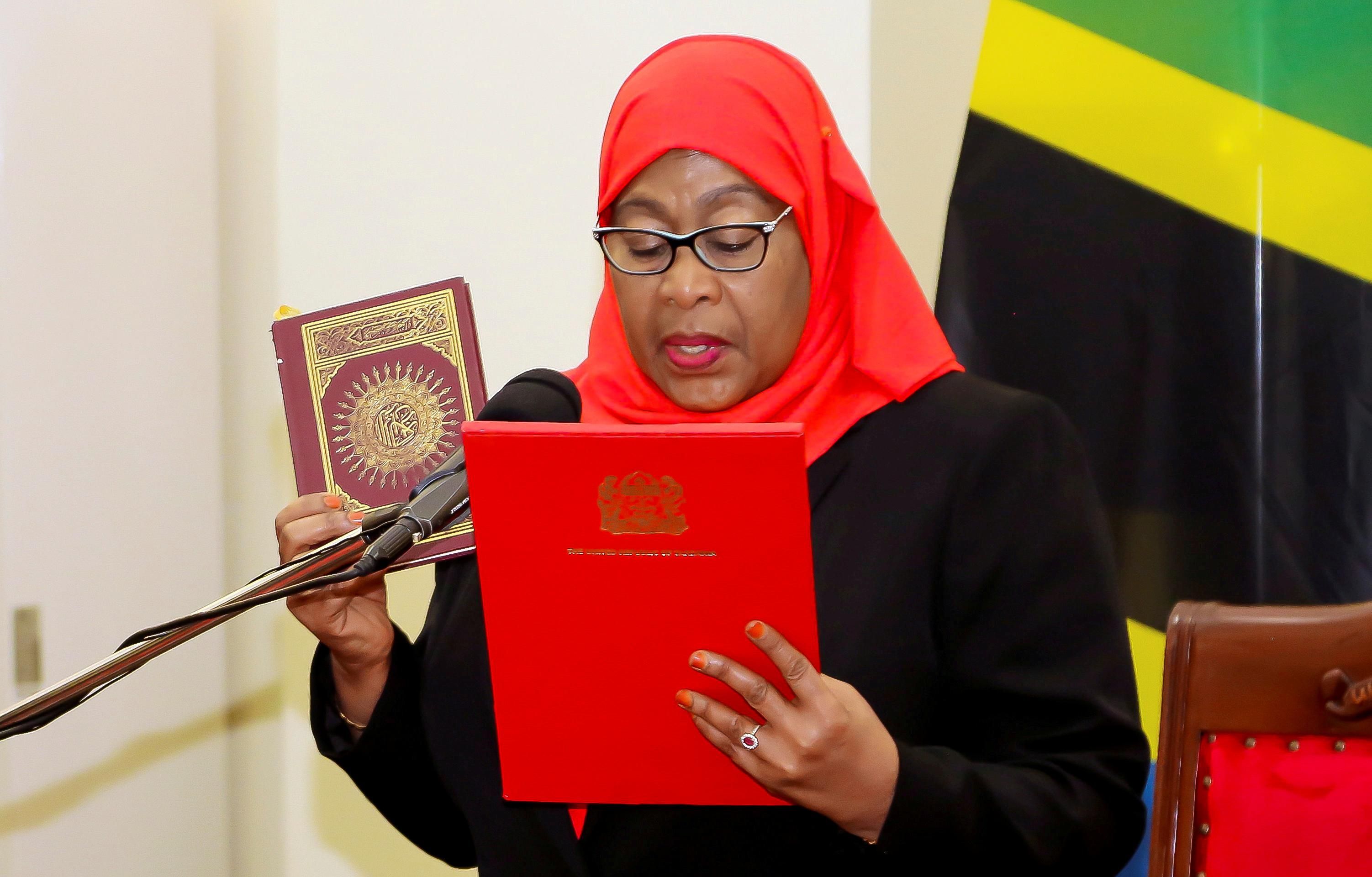News
April 06, 2021
Tanzania's U-turn on COVID, press freedom: Tanzania's new President Samia Suluhu Hassan announced on Tuesday that she'll appoint a committee to determine whether the country should start responding to the pandemic, though she stopped short of implementing any sweeping changes. While it's late in the game more than a year since the pandemic was declared, it's still a big deal considering that her late predecessor John Magufuli, who she served under as deputy for six years, was a COVID denier who shunned masks and vaccines, refused to implement pandemic-related restrictions, and declared Tanzania virus-free thanks to prayers from its citizens. (Magufuli died last month, officially from heart complications but it's widely suspected he contracted COVID-19). Hassan, who has been criticized for embracing her former boss' authoritarian tendencies at times, also plans to lift Magufuli's bans on critical media outlets, another major shift for a nation where journalists are often prosecuted over social media posts critical of the government, and citizens are regularly denied access to independent sources of information. We're watching to see if Hassan delivers on her promise of change for Tanzania.
Global economy set to rebound big: The global economy is set to grow by 6 percent this year, the IMF now says, representing the biggest output surge since the 1970s. Much of this anticipated growth is attributed to big government stimulus packages pumped into developed economies like the US, the EU and Japan in recent months. In the United States, the world's largest economy, many economists estimate that the recently passed $1.9 trillion relief package will spur economic expansion by a whopping 6.4 percent in 2021, with the US set to join China as the only two economies to achieve GDP growth exceeding pre-pandemic levels. But the economic recovery will be vastly uneven. In some emerging market economies where governments don't have the means to pump huge amounts of cash into the economy, and a lack of travel has decimated tourism-reliant communities, the post-COVID economic rebound could take much longer, the IMF says. This trend is compounded by sluggish vaccine rollouts in many places because of vaccine hoarding by wealthy countries. Still, there is no hard-and-fast rule: In large economies where the virus continues to spread like wildfire, like in Brazil, the economy continues to teeter.
State of emergency in West Darfur: Last fall, a peace treaty was signed between Sudan's transitional civilian-military government and some Darfur rebel groups, raising hopes of a new peaceful era after decades of bloodshed in Sudan. Then, the UN-African Union peacekeeping mission announced it would withdraw from West Darfur (the Sudanese enclave that borders Chad) after 13 years of occupation. But in recent months, violence has continued unabated there, prompting the Sudanese government to declare a state of emergency. Over the past few days, at least 50 people were killed in violent clashes between ethnic groups, with projectiles hitting a UN compound and a hospital. Disagreements between Arabs and non-Arab herders over farming rights and water access, coupled with other ethnic tensions and easy access to cheap weapons, have created a combustible situation in conflict-ridden Darfur. Since 2003, when Sudan's then-President Omar al-Bashir waged a deadly crackdown to quash an ethnic revolt, some 300,000 people have been killed and millions displaced. As violence surges, hopes of a long-sought peace diminish.More For You
- YouTube
For many in Iran, it’s a waiting game for how long Ayatollah Khamenei has left to live.
Most Popular
An army soldier stands guard at a post at the Friendship Gate, following exchanges of fire between Pakistan and Afghanistan forces, at the border crossing between the two countries in Chaman, Pakistan February 27, 2026. Picture taken with a mobile phone.
REUTERS/Abdul Khaliq Achakzai
In a 30-minute call on Thursday, President Donald Trump reportedly told Ukrainian President Volodymyr Zelensky he wants to end the war with Russia as soon as possible — aiming for a deal by summer, but ideally within weeks.
Former British ambassador to the U.S. Peter Mandelson leaves his residence after he was released following his arrest by London police on Monday on suspicion of misconduct in public office, following the release of U.S. Justice Department files linked to the late financier and convicted sex offender Jeffrey Epstein, in London, Britain, February 26, 2026.
REUTERS/Toby Melville
The ghost of Jeffrey Epstein continues to haunt the world.
Think you know what's going on around the world? Here's your chance to prove it.
© 2025 GZERO Media. All Rights Reserved | A Eurasia Group media company.
